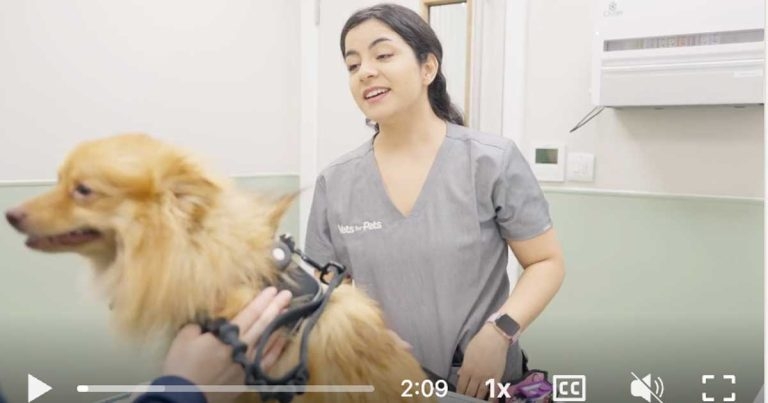16 May 2025
BVNA leaders hope the new initiative will encourage others to do more to maximise the role of RVNs within current legislative frameworks.

A still from the Vets for Pets programme's launch video.
Veterinary nursing leaders have praised a major care provider after it launched a new scheme intended to help nurses do everything they legally can in practice.
Vets for Pets bosses have described their new RVN Utilisation Skills programme as a “landmark initiative” which they say will recognise professional capabilities and simplify the current legal framework.
The company has spent the past year developing the project, which was unveiled this week during the annual Veterinary Nursing Awareness Month.
The launch was warmly welcomed by BVNA president Lyndsay Hughes as she urged the wider sector to follow the scheme’s lead.
She said: “We look forward to hearing more about the progress of this initiative, and hope that other veterinary leaders may also consider how RVNs are being empowered to develop within their own businesses.”
The programme’s launch comes amid a broader debate about how to expand the role of nurses both before and after any legislative reform.
Samantha Butler-Davies, Vets for Pets’ veterinary services director, stressed the company’s project was not intended to produce a list of permitted procedures – an idea suggested and criticised during a debate at the BSAVA Congress in March – but to help practices best apply the legislation to their own individual circumstances.
She said: “At the moment, we must work within the legislation we have. That’s absolutely imperative, but there’s an awful lot that we can do within the existing legislation.”
Concerns have persisted for some time about the potential knock-on effect on retention caused by a lack of opportunities for nurses to expand their roles.
Analysis published two years ago by another major veterinary firm, the CVS Group, found career progression was cited by more than a third of nurses who had left their roles.
But Fiona Pitchfork, an RVN and owner of a Vets for Pets practice in Hull, believes addressing the Schedule 3 question is particularly crucial.
She said: “I want my vet nurses to thrive and as long as they’re thriving and doing things that they were employed to do, they’ll keep with us.”
A range of resources, including videos and a document on the current Schedule 3 guidelines, have been made available to practices and the project is the first of several similar projects the company is planning.
Other topics set to be explored in forthcoming work include consultations, dentistry and surgical skills.
The video for the launch of the programme is available online.